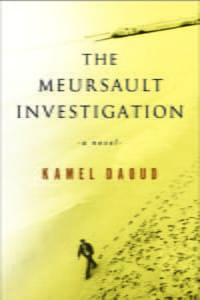Re-encountering “The Stranger”: A Review of “The Meursault Investigation”
 By Cora Lee Womble-Miesner
By Cora Lee Womble-Miesner
Some authors can put their ear to a novel and hear what is being smothered underneath: the flip side of a coin, the antagonist’s backstory. In reimagining a book from a different perspective, an author can shape a new interpretation of a classic text. What “Wide Sargasso Sea” is to “Jane Eyre,” Kamel Daoud’s “The Meursault Investigation” is to Albert Camus’s “The Stranger.” Daoud lends a penetrating new angle to the philosophical novel by writing from the perspective of Harun, the brother of the Arab man that Meursault kills, voicing the aftermath of this death on their family and community and the torment caused by the victim’s unnaming in the media coverage and “memoir” that followed. In this impassioned retelling, “The Stranger” is not a novel, but Meursault’s own non-fiction recounting of his crimes which propelled him into fame, making him a household name, while Harun’s murdered brother, Musa, is ignored and forgotten by the public eye. The narrator denounces Meursault, saying, “If he hadn’t killed and written, nobody would have remembered him.”

